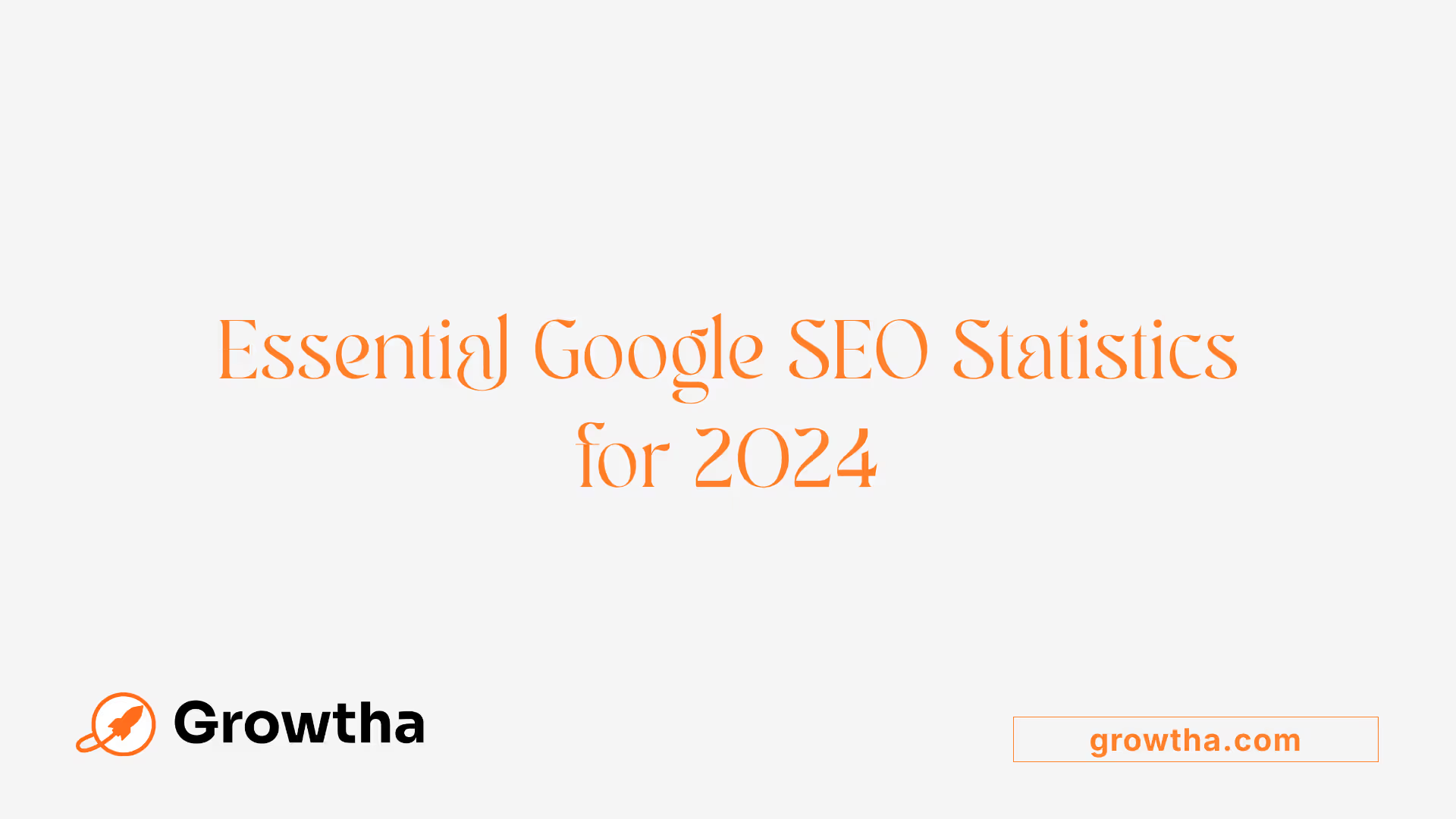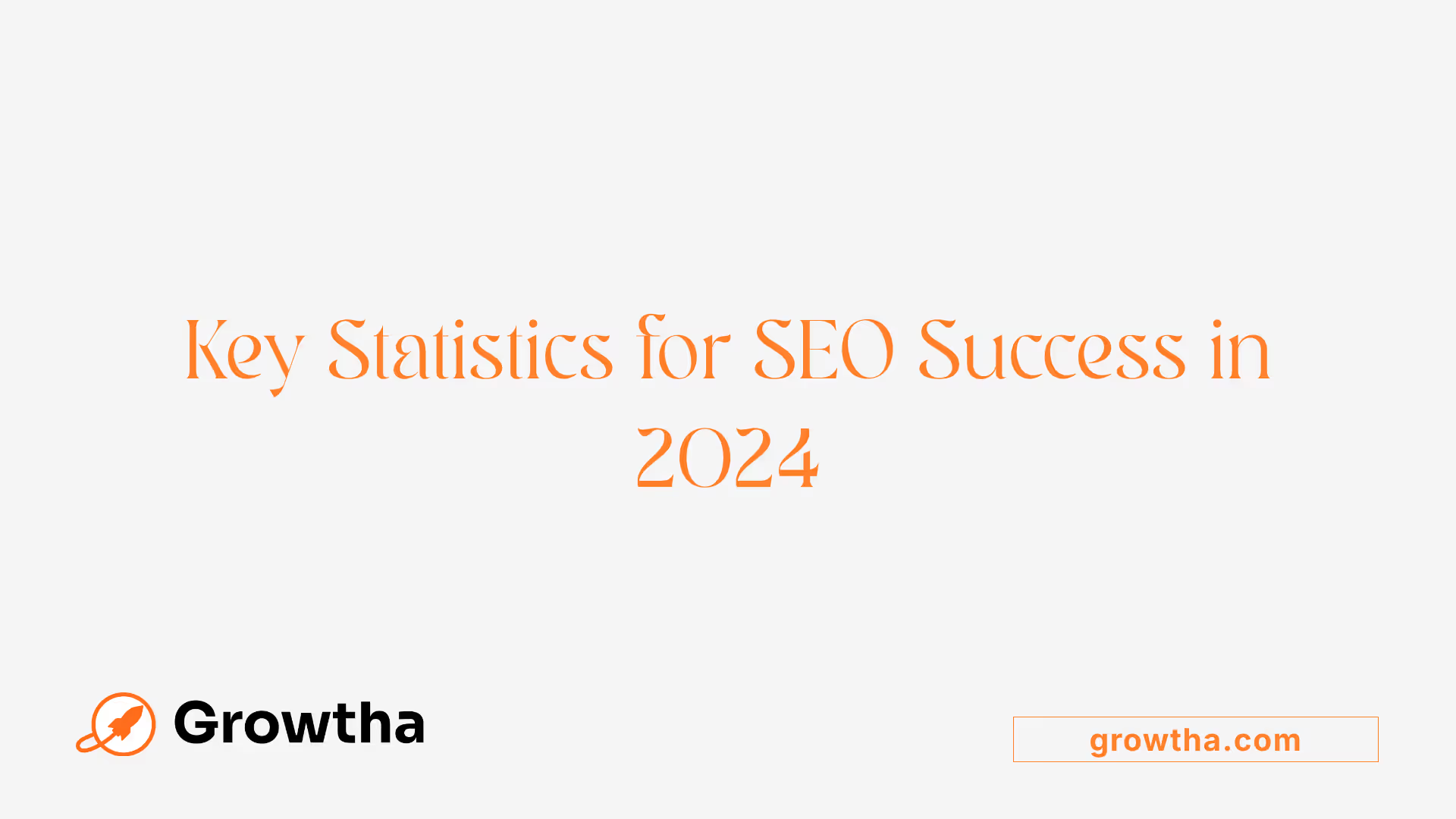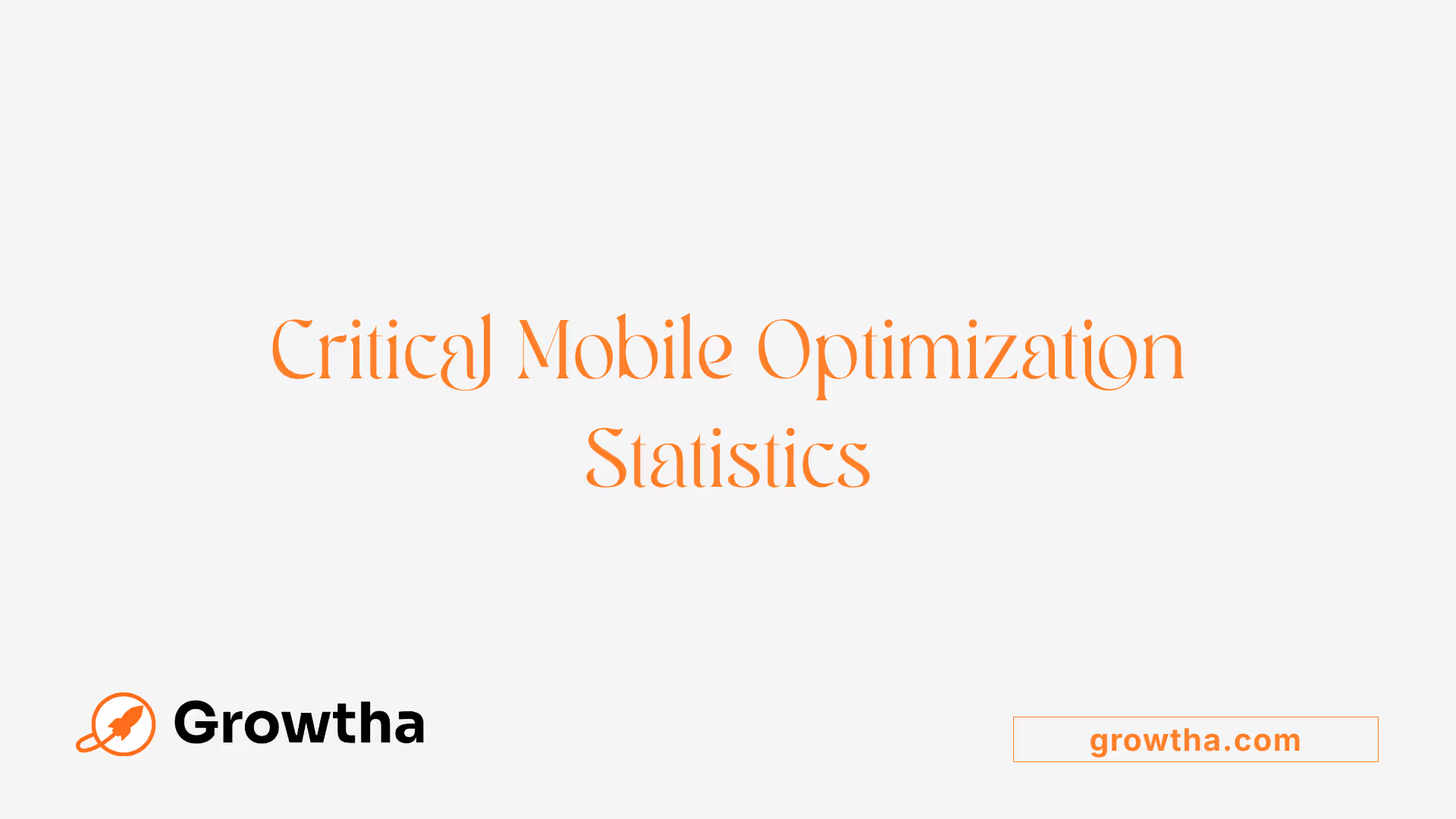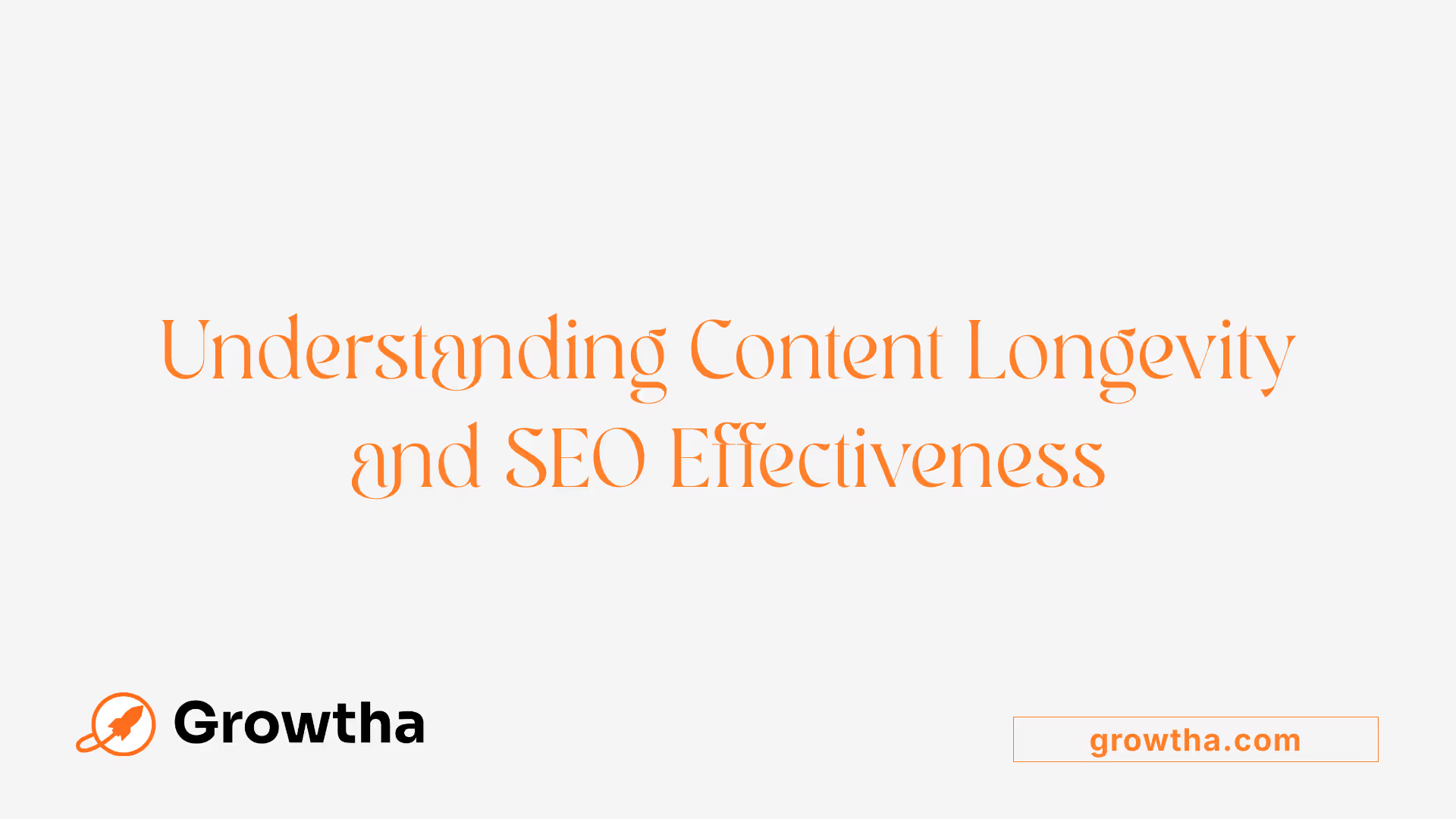8 Top SEO Statistics Every Marketer Should Know in 2024
As the landscape continues to shift, staying abreast of these changes is crucial. Here, we explore eight key statistics for 2024.


8 Top SEO Statistics Every Marketer Should Know in 2024
The Most Critical SEO Facts for Digital Strategists in 2024
Understanding the SEO Landscape in 2024
SEO is an ever-evolving field, with new statistics emerging yearly that guide marketers in crafting strategies that align with ongoing digital trends. As the landscape continues to shift, staying abreast of these changes is crucial. Here, we explore eight key statistics for 2024 that every marketer should understand to effectively enhance online visibility and support business growth.
1. The Dominance of Google in Search Engine Market

Can you provide essential Google SEO statistics for 2024?
Here are some essential Google SEO statistics for 2024: Google currently holds a dominant market share of over 91.54%, processing approximately 8.5 billion searches each day. This staggering number highlights Google as the preeminent search engine globally, making it the focal point of any effective SEO strategy.
The #1 ranking result garners around 27.6% of all clicks, signifying that positions in search results are not just competitive—they are critical for traffic generation. In stark contrast, 96.55% of content receives no traffic from Google, revealing the fierce competition for visibility that necessitates robust SEO tactics.
Further emphasizing the power of organic search, it is estimated to drive over 1,000% more traffic than organic social media, which underscores the strategic imperative for digital marketers to invest heavily into SEO strategies. A notable statistic points out that nearly 60% of top results on Google are over three years old, indicating that the maintenance and updating of existing content are pivotal elements for sustained rankings and visibility.
2. Organic Search as the Leading Traffic Source

What are the statistics for SEO success in 2024?
In 2024, SEO success statistics present a compelling case for organic search as the dominant force in driving web traffic. Organic search results account for 45.1% of all clicks, while zero-click searches are noted at 25.6%. Research indicates that content exceeding 3,000 words generates three times more traffic than average-length articles and earns significantly more shares and backlinks. Additionally, a remarkable 92.3% of users access the internet via mobile devices, which underscores the necessity for mobile optimization in SEO strategies. Looking ahead, the anticipated top disruptions in SEO performance include Generative AI, Google E-E-A-T, and automated tools, all of which signal a transformative shift in digital marketing practices. Experts within this domain emphasize that the cultivation of high-quality content remains paramount for acquiring valuable backlinks this year, alongside leveraging mobile-friendly designs and advanced keyword strategies.
3. Importance of Local SEO

What are some key local SEO statistics for 2024?
The ever-evolving landscape of local SEO reveals some compelling statistics for 2024, showcasing the profound influence local search has on consumer behavior. Notably, 80% of local mobile searches convert, a statistic that underscores the high intent of users seeking nearby services. In fact, 28% of these searches result in a purchase within just 24 hours, indicating that businesses optimizing for local search can reap immediate rewards.
Additionally, 46% of Google searches contain local intent, highlighting a critical opportunity for brands to connect with local consumers. Engaging with customer reviews remains essential; a staggering 88% of consumers prefer businesses that respond to reviews, suggesting that active communication can significantly enhance a brand's reputation and visibility.
For businesses striving for prominence in local searches, being featured in the Google 3-pack provides a tangible advantage. Studies reveal that these businesses enjoy 126% more traffic compared to their counterparts ranked lower in search results. Consequently, it becomes imperative for businesses to prioritize local SEO strategies to maximize online presence and drive foot traffic to physical locations.
Table of Local SEO Insights
Statistic Value Significance Local mobile search conversion rate 80% Indicates high purchasing intent among mobile users. Searches resulting in a purchase 28% Highlights quick consumer action after a search. Local search intent within Google searches 46% Shows the need for businesses to optimize local visibility. Preference for businesses responsive to reviews 88% Demonstrates the importance of customer engagement. Traffic increase from Google 3-pack 126% Emphasizes the importance of ranking in local search results.
4. Mobile Optimization: A Necessity for SEO

Why is Mobile Search Usage Critical?
Mobile devices account for approximately 55% of global website traffic, a testament to how integral they have become in the digital landscape. With 92.3% of users accessing the internet via mobile phones, marketers must prioritize mobile optimization as part of their SEO strategies. This trend is further underscored by the fact that 57% of local searches are conducted on mobile devices, indicating a significant shift in consumer behavior towards mobile usage when searching for local businesses. Notably, 40% of users will abandon websites that take longer than three seconds to load, highlighting the need for fast, responsive mobile experiences to retain potential customers.
Current Trends in Mobile Optimization for SEO
Trend Statistics Implications Mobile Search Dominance 60% of traffic comes from mobile devices Optimize for mobile or risk losing significant traffic. Local Search Intent 46% of searches have local intent Invest in local SEO practices to attract nearby customers. Conversion Rates 80% of local searches convert Focus on mobile strategies to boost conversions.
5. The Role of Content Longevity in SEO Success

Content Age and Search Rankings
In the world of Search Engine Optimization (SEO), content age plays a pivotal role in determining search rankings. Nearly 60% of the pages ranking in the top 10 on Google are at least 3 years old, illustrating that older, established content generally holds stronger visibility in search results. This phenomenon underscores the importance Google places on trustworthiness and relevance, often associating an older, high-performing piece of content with reliability. Specifically, the #1 result on Google captures about 27.6% of all clicks, which demonstrates that maintaining and updating older content can significantly enhance a site's traffic potential.
Benefits of Updating Old Content
Updating older content not only refreshes its relevance but can also lead to improved SEO performance. Research indicates that content exceeding 3,000 words can attract three times more traffic than average-length pieces, thereby suggesting that comprehensive, lengthy content tends to outperform shorter articles. By revitalizing and expanding existing content, marketers can also enhance backlink opportunities, as updated articles are more likely to be shared, potentially leading to increased engagement and traffic. Furthermore, integrating new keywords and optimizing for current search trends can align older content more closely with current user queries, thus improving click-through rates (CTR). This approach contributes to a site’s overall visibility and effectiveness in search rankings, clarifying that content longevity—combined with strategic updates—is integral for sustained SEO success.
Content Longevity and User Trust
With 96.55% of content receiving zero Google traffic, it is evident that only high-quality, well-maintained content captures the attention of users. The higher likelihood of older content being trusted can lead to more organic traffic, as 53.3% of all web traffic stems from organic searches. This highlights that consistently monitoring and refreshing content is not just beneficial but essential in an SEO context.
Summary of Content Longevity in SEO
Aspect Statistics Implications Percentage of Top Results Over 3 Years Old 60% Older content typically ranks higher. Clicks for Number One Result 27.6% Shows the significance of ranking. Optimal Content Length 3,000+ words Encourages better traffic performance. Organic Search Traffic 53.3% Emphasizes importance of SEO.
6. Video Content Emerging in SEO Strategy
What Are the Current Trends in Video Search?
Video content is increasingly becoming a dominant format in search engine optimization (SEO) strategies. As of recent reports, video search results appear in 26% of all searches, affirming the medium's relevance in the digital marketing landscape. Additionally, over 90% of users access the internet via mobile devices, underscoring the necessity for video optimization for mobile platforms. With 61% of consumers preferring mobile devices for brand information, businesses must ensure their video content caters to this audience. As we look to the future, generative AI and evolving algorithms will play critical roles in optimizing video for SEO, especially in light of predictions that voice search technology will be utilized by 1.1 billion mobile users regularly. This combination of engaging video content and smart optimization strategies is expected to capture user interest and enhance visibility across search engines.
How Does Video Impact SEO Effectiveness?
The impact of video on SEO cannot be overstated; it serves as a catalyst for engagement and increased web traffic. Notably, 78% of local mobile searches lead to offline purchases, mapping the strong correlation between localized video content and conversion rates. Furthermore, videos can elevate a website's click-through rate by drawing attention more effectively than static content. In fact, 87% of marketers indicate that video leads to better engagement and 80% report improved conversion rates. The trend toward longer, more informative video segments will likely contribute to higher retention rates and user interaction. As the algorithms shift to favor diverse media formats, integrating video into SEO strategies not only enhances visibility but also aligns with consumer preferences for rich, engaging content.
Overview of Video Content Trends in SEO
Trend Statistics Implication Video Search Result Appearances 26% of searches include video results Critical to include video content for visibility. Mobile Preference 91% of users access the internet on mobile Optimize videos for mobile consumption. Local Searches Influence 78% of local mobile searches lead to in-store purchases Local video content can drive significant offline sales.
7. SEO Leads and Marketing ROI
What are the latest statistics on the return on investment (ROI) for SEO in 2024?
As of 2024, recent data indicate that the return on investment (ROI) from Search Engine Optimization (SEO) is becoming increasingly significant across various sectors. In the financial services realm, businesses report an impressive ROI of 1,031%, while the average returns from SEO can soar as high as 748%. In the B2B space, organizations derive twice the revenue from their SEO efforts compared to other marketing channels. Notably, 49% of marketers express that organic search yields the best ROI when pitted against paid search strategies. This assertion is corroborated by the remarkable 14.6% close rate for SEO leads, significantly outshining traditional outbound lead methods. In light of these figures, companies that commit to SEO can realistically anticipate an average ROI of around 22:1, illustrating the substantial returns possible on their marketing investments.
SEO as a lead generator and ROI comparison with other channels
The effectiveness of SEO as a lead generator is underscored by various statistics, with 61% of B2B marketers acknowledging it as their primary source of high-quality leads. Additionally, organic search is responsible for an astounding 53.3% of overall web traffic, reinforcing its role as a critical driver in attracting visitors. The competitive landscape reveals that SEO efforts not only surpass organic social media in traffic generation—by upwards of 1,000%—but also outshine many other marketing strategies. In terms of efficiency, marketers have consistently reported that organic search contributes 45.1% of clicks, showcasing user preference for these results over paid ads. This highlights not only the effectiveness of SEO strategies in generating leads but also the substantial financial efficiency as illustrated by numerous recent analyses and reports.
Summary of Key SEO and Marketing Statistics
Statistical Factor Value Implication Average SEO ROI (all industries) 22:1 Strong returns on investment for SEO efforts. B2B revenue from SEO vs. other channels 2x SEO significantly outperforms other marketing methods. Percentage of marketers reporting SEO as highest ROI 49% Highlights the relevance of organic search in an effective strategy. SEO leads close rate 14.6% Demonstrates superior effectiveness compared to traditional leads. Organic search accounts for web traffic 53.3% Crucial for driving website visits.
8. AI's Increasing Influence on SEO
AI Integration in SEO
The incorporation of Artificial Intelligence into Search Engine Optimization (SEO) is redefining strategies and methodologies in the digital landscape. As businesses strive to enhance their online visibility, AI technologies are being leveraged to analyze vast amounts of data and automate various aspects of SEO. In particular, AI tools help in optimizing content, identifying high-performing keywords, and analyzing user behavior—all crucial elements that enhance the effectiveness of an SEO campaign. Moreover, with 68% of online experiences beginning with a search engine, the necessity for sophisticated AI-backed strategies that can drive organic search traffic becomes evident. Recent developments suggest that companies utilizing AI techniques for SEO outperform their competitors by 50%, indicating a significant trend in the marketing space.
How Might SEO Change in the Next Five Years?
Looking forward, SEO is poised for even further transformation due to advancements in AI and shifts in user behavior. As the volume of online content swells—over 90% of global searches are conducted on Google—it will become essential for brands to refine their SEO practices to ensure high-quality content is effectively discovered. In the next five years, personalization will become more prevalent in search results, allowing for a more tailored user experience, which is crucial as 61% of B2B marketers advocate for SEO as the most effective lead generation tool. The growing impact of voice search—projected to be utilized weekly by 1.1 billion mobile phone users—will necessitate that businesses adopt innovative keyword strategies, focusing more on conversational and long-tail phrases. Additionally, with mobile devices accounting for approximately 60% of organic visits, the emphasis on mobile optimization will continue to rise, guiding many businesses to refine their digital strategies accordingly. To navigate this ever-evolving landscape, businesses must steer clear of cheap or guaranteed services, which often lead to ineffective results. Instead, a comprehensive approach that combines on-page optimization, technical SEO, and diligent link-building will be crucial for maintaining relevance and achieving success in a competitive digital environment.
The Future of SEO
The future clearly leans towards an increasingly intricate SEO environment, in which achieving visibility in search engines will depend on the mastery of several interlinked strategies. Companies that embrace Generative AI, Google's evolving E-E-A-T principles, and other automated SEO tools may gain significant advantages. As the search paradigm shifts, brands that remain adaptable will thrive in their quest for organic traffic. Indeed, SEO is projected to continue generating robust returns, with anticipated ROIs of up to 12.2 times initial spend, making it a critical component of any successful marketing strategy.
Comprehensive Resources for SEO Statistics
Where can I find a comprehensive PDF of SEO statistics for 2024?
To find a comprehensive PDF of SEO statistics for 2024, consider checking reputable marketing and SEO analysis websites such as HubSpot, Moz, or Search Engine Journal. These platforms frequently publish detailed reports that synthesize current trends and statistics. Additionally, organizations specializing in digital marketing analytics provide downloadable resources that include vital metrics around ROI and performance effectiveness. To ensure you’re gathering insights necessary for your SEO strategy, look for industry-specific reports that delve into themes like organic traffic, lead generation, and market share.
Subscribing to relevant newsletters or following recognized SEO experts on social media can keep you informed about new publications as they’re released. Particularly, pay attention to surveys or white papers published around Q1 2024, as they tend to compile the fresh data and trends influencing the SEO landscape.
Availability of SEO white papers
SEO white papers are valuable documents that offer in-depth research and analysis on specific aspects of search engine optimization. Many digital marketing websites, including SEMrush and Ahrefs, regularly release white papers covering various facets of SEO such as algorithm updates, best practices, and case studies on successful strategies. Furthermore, platforms like Google’s Search Central Blog often provide insights through webinars and downloadable materials that can enhance understanding of SEO fundamentals.
Industry conferences and webinars can also be excellent sources for acquiring white papers that reflect the latest statistical insights and trends in SEO. Following technical SEO leaders and subscribing to their content can help you access such informative documents readily.
Local SEO Focus and Growth Beyond 2024
What is the projected future growth for SEO beyond 2024?
The projected future growth for SEO beyond 2024 is poised to be significantly influenced by advancements in artificial intelligence, voice search, and mobile-first indexing. As user behaviors continually evolve, SEO strategies must adapt with an emphasis on high-quality, user-centric content that aligns with natural language processing for effective voice search optimization. Technical aspects of SEO will also gain importance; factors such as site speed, mobile performance, and security are expected to be critical for enhancing user experience as well as search rankings, especially in light of Google's Core Web Vitals initiative. Additionally, as both search engines and users elevate their focus on security, the ongoing significance of secure websites is evident. Overall, the future of SEO will necessitate a comprehensive approach that integrates content quality, technical optimization, and user experience to flourish in an increasingly competitive digital landscape.
Are there technical SEO statistics available for 2024?
Currently, there are no definitive technical SEO statistics projected for 2024. However, recent data shines a light on ongoing challenges within the field. For instance, only 33% of websites can successfully meet the Core Web Vitals threshold, indicating that a significant number of websites are grappling with performance issues. Furthermore, reports demonstrate that a staggering 95.2% of websites face 3XX redirect problems, while 88% have yet to fully transition from HTTP to HTTPS – a transition essential for secure browsing. These statistics underscore the urgent necessity for businesses to address technical SEO factors, as they are pivotal for improving both site visibility and user experience. The demand for proficient technical SEO practices will likely rise as businesses realize the importance of these elements in achieving sustainable online success.
Statistic Percentage Implication Websites meeting Core Web Vitals 33% Indicates widespread page performance issues impacting user experience. Websites with 3XX redirect problems 95.2% Highlights the need for improved website management to enhance SEO. Websites not using HTTPS 88% Points to the critical importance of website security for user trust.
Navigating the Future of SEO
As we move through 2024, understanding and leveraging these key SEO statistics is crucial for marketers aiming to achieve digital success. With continuous advancements in technology and evolving user preferences, SEO remains a vital strategy in the digital marketing toolkit. By focusing on optimizing for Google, leveraging local search, improving mobile experiences, and adapting to AI integrations, businesses can enhance their visibility and generate greater ROI from their efforts. Keep abreast of future trends and always be prepared to adapt your strategies to maintain a competitive edge.
References
- 124 SEO Statistics for 2024 - Ahrefs
- 74 Important SEO Statistics for 2024 - Backlinko
- 60 SEO Statistics & Trends For 2024 – Forbes Advisor
- 61 Mind-Bottling SEO Stats for 2024 | Intergrowth®
- 47 SEO Statistics for 2024 (Updated and Verified)
- 100+ Most Memorable SEO Statistics for 2024
- 127 SEO Statistics for 2024 - SeoProfy
- 80+ SEO Statistics for 2024 | Stats & Facts About SEO







